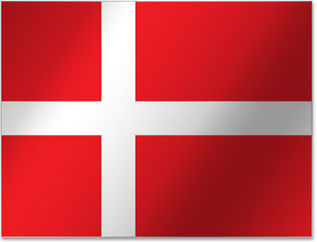Funding the cooperation
The Federal Ministry of Education and Research (BMBF) supports the cooperation of German institutions with Danish partners through a variety of funding announcements.
Please get in touch, if you have questions about the support services provided by the International Bureau.
Political framework
The 'RESEARCH2025' catalogue (FORSK2025) - published in July 2018 - bundles the priority research topics for Denmark into four main categories: new technological opportunities, green growth, better health, people and society. FORSK2025 aims to contribute to solving the challenges facing society as a whole by addressing new technological opportunities and increasing productivity, growth and employment.
The Danish government's Climate Action Plan, which was adopted in 2020, also strengthens Denmark's research policy ambitions in the context of climate-friendly innovations. In order to achieve the 1°C target of the Paris Agreement, Denmark is to be a green pioneer in global climate protection.
In May 2022, the 'Guidelines for International Cooperation in Research and Innovation' were published by the Danish research ministry. The aim is to support Danish research institutions through a balanced approach: promoting international research and innovation collaboration with an increased focus on potential risks.
Since the beginning of 2012, companies in Denmark have been able to levy a negative tax on R&D expenses if these have resulted in losses. This incentivises companies to be more open to research and development, even if no direct R&D funding is involved.
The R&D share of gross domestic product (GDP) in Denmark was an estimated 2.76% in 2021 (EUROSTAT, 2023). This share has been just under 3 per cent for several years and remains stable. This puts Denmark well above the EU-27 average (2021: estimated 2.27%; EUROSTAT).
Denmark is one of the world's leading countries in the areas of innovation, research and development, technology and competitiveness. The 'Innovation Union Scoreboard' has ranked the country among the top 3 countries in Europe in an EU comparison for years; Denmark will hold the top position in 2023. In the European Commission's 'Digital Economy and Society Index 2022' (DESI), Denmark ranks second behind Finland and ahead of the Netherlands.
If we leave the European level and switch to a global perspective, a similar picture emerges: the Global Competitiveness Report has ranked Denmark among the top 12 countries for years. In 2023, Denmark was able to defend its top position compared to 2022 and is therefore automatically the best European country in the ranking. There are five other European countries in the 'top twelve': Ireland (2), Switzerland (3), the Netherlands (5), Sweden (8) and Finland (11). In comparison: Germany is in 22nd place.
Cooperation priorities
Co-operation between Germany and Denmark mainly takes place within a multilateral framework and is geared towards actively shaping the European Research Area.
In the context of the EU Framework Programme for Research and Innovation (Horizon Europe), German and Danish researchers are working together within the programme sections 'Food, Bioeconomy Natural Resources, Agriculture and Environment', 'Climate, Energy and Mobility' and 'Digital, Industry and Space', especially.
The focus of the research projects with Danish participation within the BMBF's specialist programmes is in the field of information and communication technology.
European infrastructure
Denmark is a member of a number of international co-operations for research infrastructures that give Danish researchers access to unique international facilities. Membership of the research infrastructures is mainly carried out by the Ministry of Higher Education and Science.








